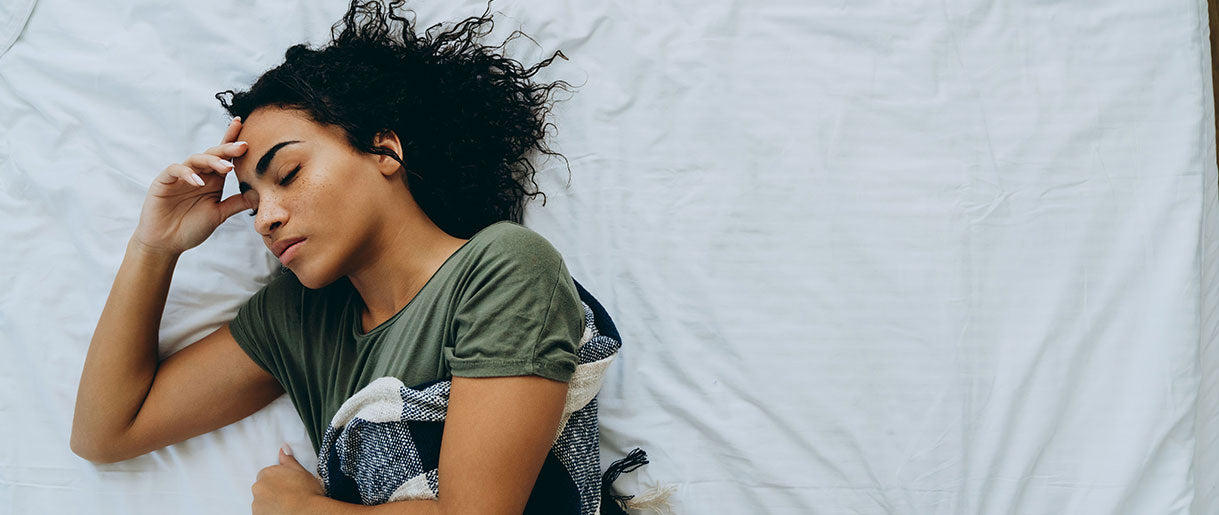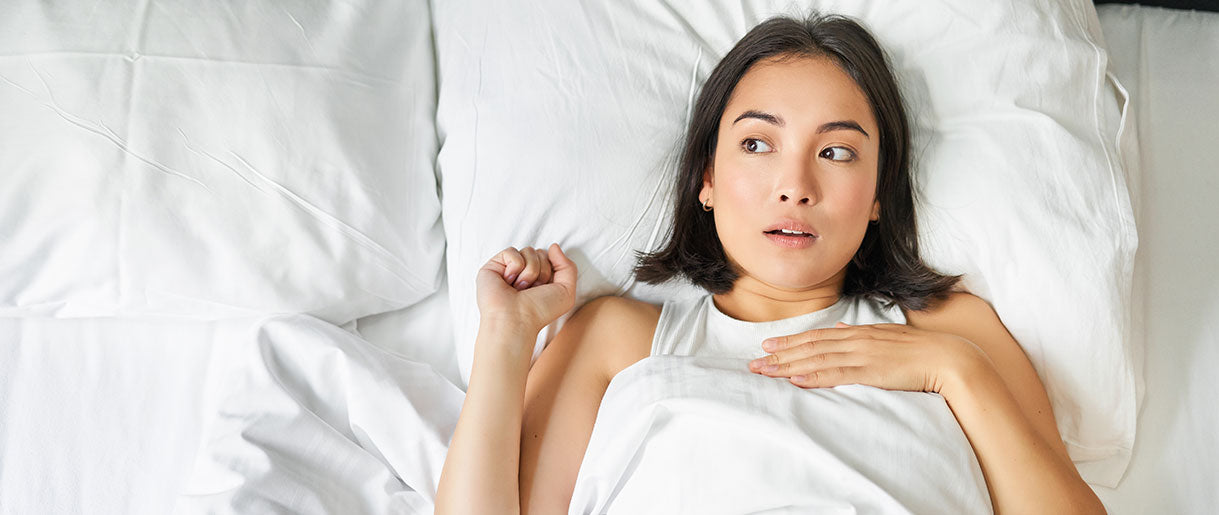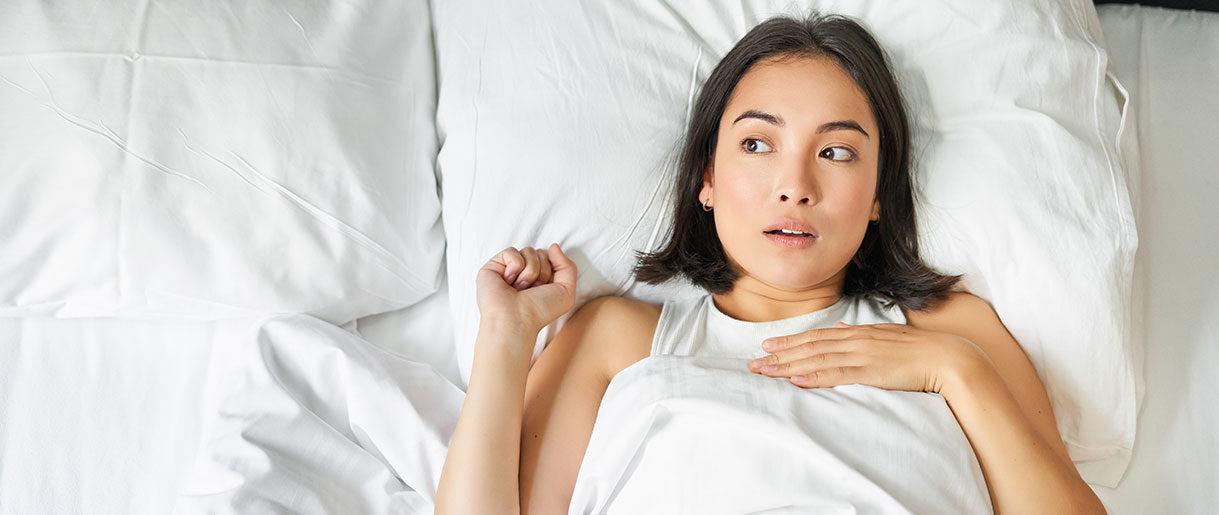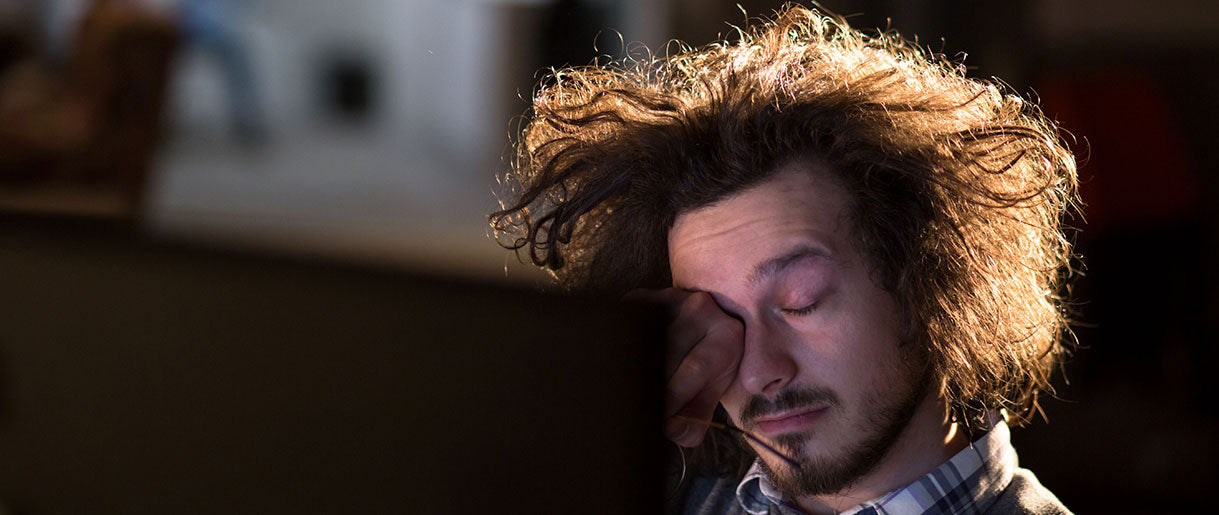Waking up tired and with no energy is often the result of several overlooked factors in our daily lives. Poor sleep quality, rather than just lack of sleep, significantly affects how refreshed we feel in the morning. Key contributors include inconsistent sleep schedules, exposure to blue light from screens before bedtime, and stress or anxiety that can disrupt restful sleep.
Nutritional choices also impact our energy levels; a diet high in sugar and processed foods can lead to energy crashes. Moreover, underlying health issues such as sleep apnea or thyroid disorders could be silently affecting your sleep quality.
By understanding and addressing these common causes, you can take meaningful steps towards waking up feeling rejuvenated and ready to face the day. This article dives into these factors, offering actionable advice to help improve your sleep and energy levels.
1. Inconsistent Sleep Schedules
Waking up tired and struggling with morning fatigue can often be traced back to inconsistent sleep schedules. It's a classic case of poor sleep hygiene that disrupts your sleep-wake cycle.
When your bedtime varies significantly from night to night, it confuses your body's natural rhythm, leading to sleep inertia—that groggy feeling you can't shake off in the morning, making it impossible to wake up early.
By not sticking to a regular sleep schedule, you're robbing yourself of deep, restorative sleep, essential for feeling refreshed and energetic when you wake up.
- Interrupted Deep Sleep: Irregular sleep patterns (1) can cut short your deep sleep phases, crucial for physical recovery and a good night's sleep.
- Restful Sleep Disruption: Fluctuating sleep times hinder the quality of restful sleep, making it harder to fall asleep and stay asleep.
- Sleep Inertia Prolongation: Inconsistent sleep schedules often lead to prolonged periods of sleep inertia (2), making you feel more exhausted upon waking.
Establishing and maintaining a consistent sleep schedule is the key to beating morning fatigue. This practice enhances the quality of your rest and helps regulate your sleep-wake cycle for better sleep.
Start by setting a fixed time to go to bed and wake up, even on weekends. This regularity will gradually train your body to expect sleep and wake times, reducing the likelihood of waking up tired.
2. Exposure to Blue Light Before Bedtime

Have you ever spent the evening binging your favorite shows or scrolling through social media, only to find yourself struggling to fall asleep later?
This common habit might interfere with your quest for a good night's sleep. The culprit? Blue light from screens can significantly disrupt the production of the sleep hormone melatonin (3). This disruption can lead to various sleep disorders or poor-quality sleep, making you wake up tired.
- Melatonin Suppression: The blue light emitted by screens inhibits melatonin production, which tells your body it's time to sleep.
- Circadian Rhythm Disruption: Exposure to blue light, especially before bedtime, can throw off your circadian rhythm (4), leading to light sleep or difficulty achieving restful sleep.
- Impact on Sleep Quality: Regular exposure to blue light before bed can result in poor sleep hygiene, reducing the overall quality of sleep and preventing you from getting a full night's sleep.
Consider establishing a screen-free routine at least an hour before bed to combat these effects and improve your sleep environment. This could involve reading a book, meditating, or other relaxing activities that don't involve screens. Doing so allows your body to produce melatonin, naturally facilitating easier and more restful sleep.
3. Stress and Anxiety
Stress and anxiety are like unwelcome guests that can disrupt sleep (5), preventing you from sinking into the deep, restful sleep your body needs.
When your mind is racing with worries or stress, achieving good quality sleep becomes challenging, often resulting in fatigue upon waking—this often leaves people wondering how to wake up when tired.
This ongoing battle with stress can not only lead to poor sleep but also exacerbate or contribute to sleep disorders, affecting both your motor and cognitive skills.
- Disruption of Deep Sleep: High stress and anxiety levels often mean spending more time in lighter sleep stages, reducing the amount of deep sleep crucial for physical and mental restoration.
- Impact on Sleep Continuity: Anxiety and stress can lead to frequent awakenings, making maintaining a continuous, restful sleep pattern harder.
- Long-Term Sleep Quality Degradation: Chronic stress can lead to long-term disturbances in sleep quality, impacting overall health and well-being.
Managing stress and anxiety, especially before bedtime, is essential to promote restful sleep. Techniques like mindfulness meditation, deep breathing exercises, or gentle yoga can effectively calm the mind and prepare the body for sleep. Establishing a relaxing bedtime routine and creating a sleep-friendly environment can also make a significant difference.
4. Poor Diet Choices

The old saying "you are what you eat" rings particularly true regarding sleep quality. Poor diet choices, particularly high consumption of sugar and processed foods, can play a significant role in disrupting sleep and, consequently, in feeling tired the next day.
Such dietary habits can not only lead to energy crashes but also contribute to the development of a serious sleep disorder, emphasizing the importance of sleep hygiene practices.
- Sugar and Sleep Disruption: Consuming high amounts of sugar can lead to fluctuations in blood sugar levels, which can interrupt your sleep (6), causing you to wake up feeling tired and making it impossible for you to go through your morning routine checklist.
- Processed Foods and Sleep Quality: Heavily processed foods, often high in unhealthy fats and sugars, can negatively impact sleep quality (7).
- Impact on Overall Health: Regular consumption of unhealthy foods can lead to weight gain and other health issues, which can further exacerbate sleep disorders and disrupt restful sleep.
Improving your diet is crucial for better sleep hygiene and overall health. Adding whole foods, like fruits, vegetables, and whole grains, can stabilize your blood sugar levels and promote better sleep.
Also, limit heavy meals and caffeine close to bedtime, as these can interfere with your ability to fall asleep. Consider replacing coffee with the best teas for sleep for a more restful night.
5. Lack of Physical Activity
Morning tiredness can often be traced back to a sedentary lifestyle. A lack of physical activity during the day can significantly contribute to poor sleep quality, impacting how much sleep you get and how restful that sleep is. Regular exercise helps with staying asleep throughout the night and improves the overall quality and duration of your sleep (8).
- Enhances Sleep Quality: Regular physical activity can deepen your sleep (9), making it more restorative and reducing the likelihood of waking up frequently at night.
- Regulates Sleep Duration: Exercise can help regulate your body's need for sleep (10), potentially increasing your sleep hours each night.
- Reduces Stress and Anxiety: Physical activity is a known stress reliever (11), which can help improve sleep quality and decrease morning tiredness.
Incorporating regular exercise into your routine doesn't mean you need to start intense workouts. Even moderate activities like walking, cycling, or yoga can profoundly impact your sleep. The key is consistency and finding a type of morning exercise for energy you enjoy.
By staying active, you're not just improving your physical health but also setting the stage for better sleep. Aim for at least 30 minutes of exercise most days of the week, and observe how it positively affects your sleep duration and quality.
6. Overuse of Caffeine and Alcohol

Excessive tiredness and morning grogginess are often the unwelcome consequences of the overuse of caffeine and alcohol. These substances are notorious for their ability to disrupt sleep patterns and diminish sleep quality.
They can delay sleep onset, reduce the total sleep time, and fragment the sleep you do get, leaving you far from the recommended at least seven hours of sleep.
- Caffeine's Sleep Delay: Caffeine, a stimulant, can delay the timing of your body clock, making it harder to fall asleep and potentially leading to sleep troubles (12).
- Alcohol's Impact on Sleep Architecture: While alcohol might initially help you fall asleep, it significantly disrupts the second half of the sleep cycle, leading to fragmented and non-restful sleep (13).
- Effect on Sleep Phases: Both caffeine and alcohol can alter the normal progression of sleep phases, particularly reducing the amount of REM sleep, which is crucial for feeling rested.
To avoid these sleep-disrupting effects, it's advisable to limit caffeine consumption to the earlier part of the day and moderate alcohol intake, especially close to bedtime. Establishing a cutoff time for these substances can greatly enhance your sleep quality.
For instance, avoiding caffeine after 2 PM and limiting alcohol intake can help ensure your body is ready for restful sleep at bedtime. This way, you can wake up feeling refreshed and less groggy, making the most of your morning routine for energy.
7. Dehydration
Dehydration is often overlooked in sleep quality, yet it plays a crucial role. Not drinking enough water throughout the day can lead to feelings of tiredness and fatigue, affecting your overall energy levels and sleep.
- Impact on Physical Functions: Dehydration can impact various bodily functions, making you feel more fatigued and potentially disrupting your sleep (14).
- Contribution to Sleep Disturbances: A lack of adequate hydration can lead to dry mouth and nasal passages, increasing the likelihood of snoring or sleep disturbances.
- Effect on Morning Alertness: Being dehydrated can make you feel dizzy and less alert in the morning, as your body hasn't received the necessary fluids to rejuvenate during sleep.
To combat these issues, it's essential to maintain good hydration habits. Drinking sufficient water throughout the day, especially in the hours leading up to bedtime, can help ensure your body is properly hydrated for a good night's sleep.
However, balance your intake to avoid frequent nighttime awakenings for bathroom trips. This balance will help you achieve more restful and uninterrupted sleep, allowing you to wake up refreshed and alert.
8. Sleep Disorders

Sleep disorders, such as sleep apnea or insomnia, are significant barriers to achieving a quality night's rest.
These conditions, particularly when undiagnosed, can severely affect the quality and quantity of your sleep, leading to various health issues and impacting daily life. Understanding and addressing common sleep disorders is essential to good sleep hygiene practices.
- Undiagnosed Sleep Disorders: Many people suffer from sleep disorders like sleep apnea and insomnia without realizing it. These conditions can lead to frequent awakenings, difficulty falling and staying asleep, poor overall sleep quality.
- Impact on Daily Functioning: Without a proper diagnosis and treatment, sleep disorders can impair daytime functioning, concentration, and mood.
- Sleep Medicine and Management: Consultation with a sleep medicine professional can lead to effective diagnosis and treatment plans. These might include lifestyle changes, medical interventions, or behavioral therapy.
Even if you consider yourself a 'night owl,' it's crucial to be aware of the signs of common sleep disorders and seek medical advice if you suspect you might have one. Good sleep hygiene practices, like maintaining a consistent sleep schedule and creating a comfortable sleep environment, can also help manage these conditions.
9. Medical Conditions
Chronic fatigue can often be a symptom of underlying medical conditions such as thyroid disorders, Anemia, and various other health issues.
These conditions can significantly disrupt your natural sleep patterns, leading to problems falling asleep, staying asleep, and achieving a restful night. Moreover, they can exacerbate morning grogginess and contribute to other sleep disorders.
- Thyroid Disorders: Conditions like hypothyroidism or hyperthyroidism can greatly impact energy levels and sleep quality (15), leading to chronic fatigue.
- Anemia's Impact on Sleep: Due to its effect on oxygen transport in the body, Anemia can cause fatigue and make it challenging to maintain a consistent sleep pattern (16).
- Interrelation with Other Sleep Disorders: Some medical conditions can lead to or worsen other sleep disorders, further disrupting sleep and contributing to a cycle of fatigue.
If you're consistently experiencing chronic fatigue, it's essential to consult a healthcare professional. They can assess for underlying medical issues affecting your sleep and overall energy levels. In addition to medical treatment, maintaining good sleep habits can help manage these conditions.
10. Medications

While essential for treating various health conditions, certain medications can sometimes have side effects, including fatigue and sleep disruption. This unintended consequence can disrupt your sleep pattern, leading to difficulties in both falling asleep and staying asleep, ultimately affecting the overall quality of your rest.
- Side Effects Impacting Sleep: Many prescription and over-the-counter medications can cause drowsiness or disrupt natural sleep cycles, leading to less restful sleep.
- Interaction with Sleep Patterns: Some medications might interfere with the body's natural sleep-wake cycle, causing irregular sleep patterns and contributing to fatigue.
- Compounding Effect with Other Factors: Medications, in combination with other factors like stress or poor diet, can exacerbate sleep difficulties and increase the likelihood of waking up feeling tired.
If you suspect that your medication is affecting your sleep, it's essential to consult your healthcare provider. They can review your medication regimen and, if necessary, adjust dosages, change medications, or suggest strategies to counteract these side effects.
11. Environmental Factors
The environment in which you sleep plays a crucial role in how well you rest. Factors like temperature, noise, and light in your bedroom can significantly affect your sleep quality. If your sleeping space is too hot, cold, or noisy, it can disrupt your sleep, leading you to feel tired despite aiming for the recommended seven to nine hours of shut-eye.
- Temperature Troubles: An overly warm or cold bedroom can prevent you from falling asleep quickly and disrupt your sleep during the night, contributing to a poor sleep environment.
- Noise and Light Disturbances: Constant noise or bright light in your bedroom can lead to fragmented sleep, making it difficult to get enough sleep and possibly masking an undiagnosed sleep disorder or an underlying health condition.
To enhance your sleep environment, consider implementing these healthy habits:
- Optimize Bedroom Temperature: Aim for a comfortable temperature that's not too hot or cold. The ideal range for most people is between 60 to 67 degrees Fahrenheit (15.6 to 19.4 degrees Celsius).
- Reduce Noise and Light: Use earplugs or white noise machines to manage noise levels and blackout curtains or eye masks to block out bright light.
- Create a Relaxing Atmosphere: Ensure your bedroom is a sleep sanctuary. This might include comfortable bedding, calming colors, and a clutter-free space.
By fine-tuning these environmental factors, you can create a conducive setting for restful sleep, helping manage stress and preventing sleep-related issues. Remember, investing in a sleep-friendly environment is an investment in your overall health and well-being.
FAQs About Waking Up Tired and No Energy
What Are Some Common Signs That My Sleep Quality Is Poor?
Common signs of poor sleep quality include difficulty falling asleep, frequent awakenings during the night, waking up feeling tired, experiencing daytime fatigue, and having trouble concentrating during the day.
If you consistently feel unrested despite spending enough hours in bed, it might indicate poor sleep quality. Consider analyzing your sleep schedule and try to improve it to enjoy better sleep.
How Can I Improve My Sleep Environment For Better Quality Sleep?
Create a quiet, dark, and cool space to improve your sleep environment. Use blackout curtains or eye masks to block out light.
Consider earplugs or a white noise machine for noise control, and set your bedroom temperature to a comfortable range, ideally between 60 to 67 degrees Fahrenheit. Also, ensure your mattress and pillows are comfortable and supportive.
Can Regular Exercise Help With Sleep Disorders?
Yes, regular exercise can significantly improve sleep quality. It helps regulate your body's natural sleep-wake cycle, reduces stress and anxiety, and promotes deeper, more restful sleep.
Aim for at least 30 minutes of moderate exercise most days of the week, but avoid vigorous workouts close to bedtime as they might interfere with your ability to fall asleep.
Key Takeaways
As we've journeyed through the various factors that can lead to waking up tired and devoid of energy, it's clear that good sleep is a complex dance of habits, environment, and health.
Remember, whether it's tweaking your diet, adjusting your sleep environment, or addressing mental health issues, each small change can significantly improve your sleep quality—and, by extension, your overall quality of life.
But let's not stop here. Consider this article a starting point on your path to conquering those groggy mornings and transforming them into vibrant starts. It's about taking control, one restful night at a time.
And who knows? With each change, you might wake up feeling more refreshed and energized than you ever thought possible.
We're curious to hear about your journey towards better sleep. Have you tried any of these tips? Did you uncover any other strategies that worked wonders for you?
Share your experiences, questions, or sleep-conquering tips in the comments below. Let's keep the conversation going, because together, we can all wake up to brighter, more energetic mornings!
References
- Effects of an irregular bedtime schedule on sleep quality, daytime sleepiness, and fatigue among university students in Taiwan, (1), https://www.ncbi.nlm.nih.gov/pmc/articles/PMC2718885/
- Sleep inertia: current insights, (2), https://www.ncbi.nlm.nih.gov/pmc/articles/PMC6710480/
- Systematic review of light exposure impact on human circadian rhythm, (3), https://pubmed.ncbi.nlm.nih.gov/30311830/
- The influence of blue light on sleep, performance and well-being in young adults: A systematic review, (4), https://www.ncbi.nlm.nih.gov/pmc/articles/PMC9424753/
- Sleep and anxiety disorders, (5), https://www.ncbi.nlm.nih.gov/pmc/articles/PMC3181635/
- Relationship Between Added Sugar Intake and Sleep Quality Among University Students: A Cross-sectional Study, (6), https://www.ncbi.nlm.nih.gov/pmc/articles/PMC8848117/
- Association between the Degree of Processing of Consumed Foods and Sleep Quality in Adolescents, (7), https://www.ncbi.nlm.nih.gov/pmc/articles/PMC7071336/
- The effect of regular aerobic exercise on sleep quality and fatigue among female student dormitory residents, (8), https://bmcsportsscimedrehabil.biomedcentral.com/articles/10.1186/s13102-020-00190-z
- The Effect of Physical Activity on Sleep Quality and Sleep Disorder: A Systematic Review, (9), https://www.ncbi.nlm.nih.gov/pmc/articles/PMC10503965/
- Interrelationship between Sleep and Exercise: A Systematic Review, (10), https://www.ncbi.nlm.nih.gov/pmc/articles/PMC5385214/
- Effects of Exercise and Physical Activity on Anxiety, (11), https://www.ncbi.nlm.nih.gov/pmc/articles/PMC3632802/
- The effect of caffeine on subsequent sleep: A systematic review and meta-analysis, (12), https://pubmed.ncbi.nlm.nih.gov/36870101/
- The Effects of Alcohol on Quality of Sleep, (13), https://www.ncbi.nlm.nih.gov/pmc/articles/PMC4666864/
- Short sleep duration is associated with inadequate hydration: cross-cultural evidence from US and Chinese adults, (14), https://pubmed.ncbi.nlm.nih.gov/30395316/
- The relationship between thyroid function tests and sleep quality: cross-sectional study, (15), https://www.ncbi.nlm.nih.gov/pmc/articles/PMC8848531/
- Association between iron deficiency anemia and sleep duration in the first year of life, (16), https://www.scielo.br/j/rpp/a/9B3rk4G4JxMbFJ7mWJGZjnc/?format=pdf&lang=en









Let Us Know Your Comments